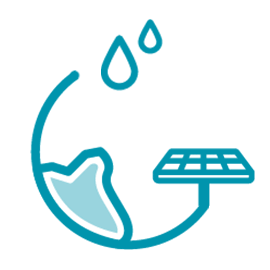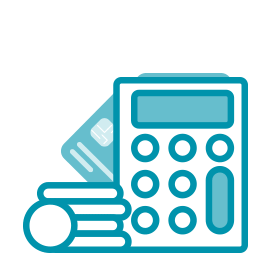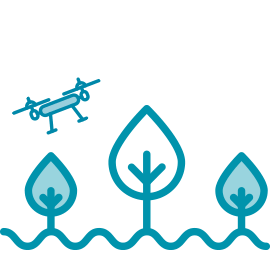
Sustainable Energy and Climate Adaptation
Although impoverished people are more vulnerable to the impacts of climate change, they lack access to adequate mechanisms to cope and adapt.
Climate change is expected to “push more than 100 million people back into poverty over the next fifteen years” [1], the World Bank estimates. The 2.5 billion smallholder farmers, herders and fisheries – who depend on the climate and natural resources for food and income – are the most at risk. Extreme weather events like hurricanes, wildfires and droughts threaten their agricultural production and health, with potential to increase last-resort migrations, diseases, conflicts and hunger.
Because making an impact at scale can only be illusory if climate adaptation is not taken into consideration, PHB believes in taking targeted action to help people cope with climate shocks. Access to finance, such as government subsidies and insurance mechanisms, can help farmers manage agricultural risks through timely indemnities and pays-outs; Access to information, such as accurate weather forecasts and advice on how to transition to more rain-resistant crops, can help farmers be better prepared and more resilient in front of climate change hazards.
Digital technologies can be powerful tools for reducing the impacts of climate change – both at a preventive or coping level. For example, pay-as-you-go and digital payment technologies can increase the take-up of clean energy; mobile money-enabled insurance (including rainfall index insurance) eases access to financial protection that smallholder farmers need to deal with unpredictable weather patterns; mobile money-enabled social cash transfers provide immediate support to affected communities; climate-smart finance – or green finance- encourages marginalized communities to use more sustainable environmental-friendly practices; etc.
PHB has supported the implementation of sustainable energy and climate adaptation mechanisms. In Mali and Burkina Faso, we have for example supported SNV’s Sustainable Technology Adaptation for Mali’s Pastoralists (STAMP) project, in which satellite-gathered data is made available to nomadic herders, enabling them to find water and biomass for their animals.
[1] Managing the impacts of climate change on poverty- Source: Global Facility for Disaster Reduction and Recovery (GFDRR)


 Finance
Finance
 Agriculture
Agriculture
 Social Protection & Humanitarian Assistance
Social Protection & Humanitarian Assistance
 Education
Education